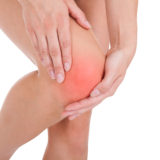

The human skeleton is a dynamic system that goes through a lifelong recurring cycle of building bone and breaking it down. In youth the body is creating bone at a much faster rate than it is resorbing (breaking down) it. At around the age of 30, that process begins to equalize and, from there on, the body begins to break down bone faster than it makes it. How fast that process happens and the likelihood of developing osteoporosis (a medical condition characterized by brittle, thinning bones) later in life depends upon a number of variables, such as:
- Gender – Women are more likely than men to acquire osteoporosis.
- Race – Caucasian and Asian people have higher risk.
- Smoking – Smokers have a significantly higher risk of accelerated bone loss.
- Physical Activity – Physically active people have lower probability of developing osteoporosis.
- Diet – Poor diet at any time in life increases the risk of significant loss of bone mass later in life.
- Vitamin D Deficiency – Vitamin D3 is necessary for absorption of calcium into bone matrix.
- Medications – Corticosteroids, such as prednisone, and other medications can be damaging to bone.
- Hormone Imbalance – Low testosterone, low estrogen or high thyroid hormone levels in the blood accelerate bone loss.
These and other factors influence bone growth when we are young, peak bone mass when we hit our 30s, and how well we will retain bone mass as we age. While there are medications that can treat osteoporosis, they are not used until the condition is in an advanced stage and, like any drug, bring negative side effects along with the therapy they deliver.
Thankfully, simple, healthy lifestyle practices go a long way toward minimizing the risk of osteoporosis. Use these tips to help protect and preserve healthy bones throughout life.
8 Ideas for Bone Health
- Healthy Diet – Calcium-rich foods such as: leafy green vegetables, dairy, almonds, figs, broccoli and fatty fish such as salmon, mackerel and sardines help sustain blood calcium levels that support healthy bones. Research indicates that eating dried plums daily helps preserve healthy bone mass.
- Exercise – Vigorous weight-bearing exercise including strength training provides stress to the bones that stimulates bone growth.
- Vitamin D Supplementation – Vitamin D3 is necessary for calcium absorption and deposition into bone matrix. Since there are few food sources of absorbable Vitamin D3, and sun exposure is seasonally limited and carries its own risks, the best way to ensure adequate levels of Vitamin D3 in the blood is through supplementation. The Vitamin D Council recommends 30-35 IU/lb. of body weight per day. This calculates to 3500-5000 IU for most adults and children over the age of 12.
- Calcium Supplementation – The U.S. recommended daily allowance (read: the minimum necessary to sustain life) is 1,000 mg per day and increases after the age of 40 or so. Using a quality calcium supplement helps provide the daily calcium necessary for maintenance of healthy bones.
- Avoid Smoking – Among its many negative health effects, smoking promotes the accelerated destruction of bone mass. No smoking – no brainer.
- Drink in Moderation – For reasons as yet unknown, 1 or 2 servings of alcohol per day seem to have a protective effect on bone, but any more than that has a destructive effect.
- Get Your Beauty Sleep – Emerging research indicates that sleep deprivation is harmful to bone health. Further study is necessary to make the connection, but getting a good night’s sleep couldn’t hurt.
- Manage Your Meds – Make sure your physician(s) are aware of all of the medications you are taking. Many can have negative effects on bone health and in combination with others can cause devastating bone loss. Work with your doctor to eliminate, replace or minimize the dosage medications that effect your bone mass. Talk to your doctor about scheduling a bone density test if you are concerned about your bone health.
As with most things concerning general health and well being, healthy diet, regular exercise, and thoughtful use of supplemental nutrition can go a long way to protecting your bones and prolonging your life.





You really should read “The Calcium Lie II” by Robert Thompson, M.D..